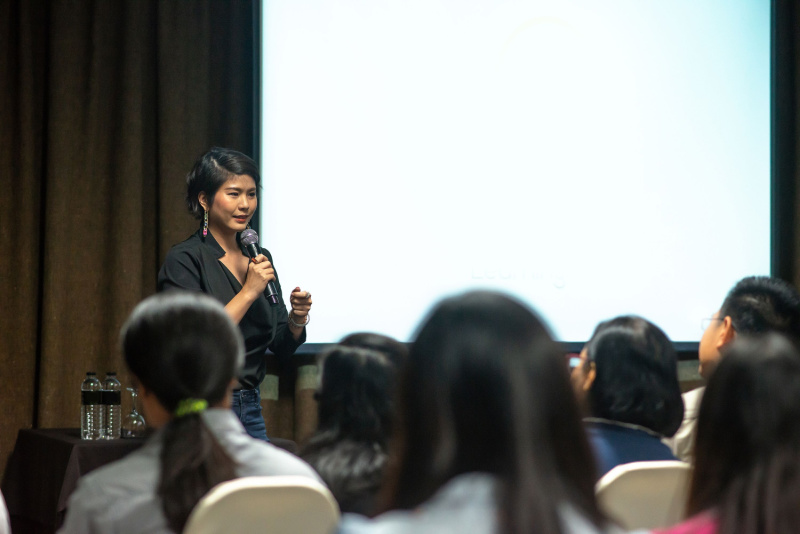The road to becoming a diplomat in the Philippines is competitive, but every step is designed to prepare you for a career in the foreign service.

Key Takeaways:
- Becoming a diplomat starts with the Foreign Service Officer Examination (FSOE), a rigorous process that tests knowledge, skills, and resilience.
- Entry-level Foreign Service Officers in the Philippines earn around ₱94,132 per month (Salary Grade 24).
- Beyond exams and training, success in diplomacy requires strong communication, adaptability, and cultural sensitivity to represent the Philippines on the global stage.
Have you ever dreamed of representing the Philippines on the global stage? A career in foreign affairs may be your calling.
At its core, diplomatic work allows you to help shape international relations, promote national interests, and contribute to global peace and cooperation. This path begins with becoming a Foreign Service Officer (FSO) in the Philippines.
Let’s explore how you can pursue this meaningful career and the steps you’ll need to take for your professional growth.
Why Work in Foreign Affairs?
Choosing diplomat work is a commitment to serve the country. Here are five reasons to consider this career:
Competitive Salary and Benefits
The foreign service officer’s salary in the Philippines is among the most attractive in government service. As of 2024, an entry-level FSO IV receives a Salary Grade 24 equivalent to ₱94,132 per month, excluding allowances, benefits, and overseas perks.
With promotions and foreign postings, compensation becomes even more rewarding.
Prestige and Influence
Serving as a Foreign Service Officer in the Philippines is a mark of prestige. As part of the Department of Foreign Affairs (DFA), you represent the Philippines in bilateral talks, international summits, and global organizations—carrying the nation’s voice onto the world stage.
Career Growth and Global Mobility
This career offers continuous learning and professional development. Diplomats often undergo specialized training, learn new languages, and rotate across various international assignments.
Such competencies open doors not only in diplomacy but also in rewarding jobs for MPA graduates within government, NGOs, and multilateral institutions.
Unique Experiences Abroad
Few jobs give you the opportunity to live in different countries while expanding your worldview. As a diplomat, you experience new cultures firsthand while advancing Philippine interests.

National Service with Global Impact
For many, the greatest reward lies in making a difference. Whether negotiating treaties or protecting overseas Filipinos, foreign affairs professionals directly contribute to the nation’s global standing.
Steps on How to Be a Diplomat in the Philippines
The DFA outlines a rigorous process that ensures only the most qualified individuals serve as FSOs. Here’s a step-by-step guide:
1. Select a Relevant Degree Program
The foundation for working in foreign affairs is built through strong academic preparation. Courses like political science, law, economics, and international relations give you an edge. A postgraduate program, such as a Master’s in Public Administration in the Philippines, can also strengthen your qualifications.
2. Confirm Your Eligibility
You must be a natural-born Filipino citizen, a college graduate, and have at least two years of work experience after completing your bachelor’s degree. There is no age limit.
3. Prepare Your Academic and Documentary Requirements
Before you can apply, you need to secure both your educational records and supporting personal documents. These will serve as proof of your qualifications and eligibility:
- Transcript of Records and Diploma (original/CTC + photocopy)
- If earned abroad: must be apostilled or authenticated by a Philippine Foreign Service Post
- PSA-issued Birth Certificate (or Report of Birth from PH embassies/consulates abroad)
- PSA-issued Marriage Certificate (if married, or Report of Marriage from a PH Foreign Service Post)
- Two government-issued valid IDs (plus photocopies)
- Certificate of Employment showing at least 2 years of work experience (if tenure is less than 2 years, include COEs from previous employers)
- Civil Service Commission Form 100 and FSOE application form
- Eight (8) recent colored photographs with a handwritten nametag
4. Apply for the Foreign Service Officer Examination (FSOE)
The FSOE is the official gateway into the DFA and is conducted annually. Announcements about the exam schedule and application requirements are posted on the DFA website, so keeping track of deadlines is essential.
Submit your application to the Board of Foreign Service Examinations (BFSE) Secretariat, DFA Regional Consular Offices, or Philippine Embassies/Consulates abroad. The application fee is ₱500 (non-refundable).
5. Prepare for the Qualifying Test
Administered by the Civil Service Commission, this is the first stage of the FSOE. This test evaluates your verbal, analytical, numerical, and managerial abilities. You must achieve a score of at least 80% to move forward.
6. Pass the Written Exam
This three-day written exam tests your knowledge of foreign policy, international law, and governance. You must score 75% or higher to pass, with coverage in areas like:
- English (20%)
- Filipino (5%)
- Philippine political, economic, social, and cultural conditions (30%)
- International affairs (30%)
- World history (10%)
- Foreign language (5%) — choose from Bahasa Indonesia, Mandarin, French, German, Japanese, or Spanish
7. Excel in the Oral Exam
At this stage, you will be evaluated on your confidence, critical thinking, and ability to articulate positions on complex issues. The panel may ask you to defend arguments, analyze scenarios, or discuss global concerns to measure your diplomatic potential.
The Oral Test has three parts: a speech activity, a group discussion, and a panel interview. It evaluates communication, critical thinking, and values. The passing score is 80%.
8. Complete the Psychological Assessment
Diplomatic work can be demanding, especially when assigned to challenging environments abroad. The psychological exam ensures you are mentally resilient, adaptable, and capable of managing stress under pressure.
9. Undergo Medical and Background Checks
A comprehensive health assessment is required to confirm you are physically fit for international assignments. Background checks are also conducted to verify your integrity and suitability for representing the Philippines abroad.
10. Train at the Foreign Service Institute (FSI)
Before deployment, candidates train at the Foreign Service Institute (FSI), where they learn negotiation, cross-cultural communication, and the essentials of diplomatic work.

11. Receive Official Appointment as a Foreign Service Officer
After passing, you undergo a six-month training program under RA 7157. Successful candidates are then recommended to the President for appointment as FSO IV, beginning their careers with local posts before overseas assignments.
Ultimately, learning how to work in foreign affairs comes down to following each of these steps with commitment, discipline, and a genuine passion for public service.
For a deeper look at this process, the DFA provides a step-by-step guide on its official website.
Skills You Need to Become a Diplomat
Success in foreign affairs goes beyond passing exams. To thrive in this career, you need a blend of technical expertise and soft skills:
- Strong Communication: Diplomats must express ideas clearly, both in writing and speaking, across cultures and languages
- Analytical Thinking: Crafting foreign policy requires sharp critical thinking and problem-solving skills
- Adaptability: Foreign postings can mean sudden relocations, cultural adjustments, and crisis management
- Leadership and Negotiation: Diplomats often lead delegations and represent the country in sensitive negotiations
- Cultural Sensitivity: Respect and understanding of diverse traditions are crucial in building international relationships
Take the First Step Toward Your Diplomatic Career
Formal education provides the foundation for success in foreign affairs work. A postgraduate degree not only enhances your qualifications but also sets you apart in the competitive FSO exams.
With OEd PostGrad, you can pursue advanced studies through flexible education, allowing you to balance work, personal life, and academic growth. For working professionals, this model ensures you don’t have to sacrifice your career while preparing for a future in diplomacy.
If you’re ready to pursue a career in foreign affairs, now is the time to get started. However, if your interests lean toward research and policy evaluation, exploring how to be a policy analyst can offer an equally impactful path.
Enroll in OEd PostGrad today. Take the first step toward becoming a future leader in Philippine diplomacy.

FAQs on How to Work in Foreign Affairs in the Philippines
1. What are the duties of a diplomat or Foreign Service Officer (FSO)?
Diplomats represent the Philippines abroad by reporting on international developments, drafting agreements and reports, assisting overseas Filipinos, promoting trade and culture, and representing the country in global forums. They also manage consular services and supervise embassy or consulate staff.
2. What foreign languages are included in the FSO Examination?
Applicants must choose one foreign language for the Written Test. The options are Bahasa Indonesia, Chinese (Mandarin), French, German, Japanese, and Spanish. This portion makes up five percent of the exam.
3. What is the schedule of the FSO Examination?
The FSOE is held yearly in four stages. The Qualifying Test is usually in January, followed by the Written Test around mid-year. Successful candidates then take the Psychological Test and, finally, the Oral Test. The DFA announces official dates and venues.
4. Can I retake the FSO Examination if I fail?
Yes. Those who fail the Written, Psychological, or Oral Test do not need to retake the Qualifying Test. However, candidates must wait two years before retaking the Psychological Test, and those who fail the Oral Test must retake the Written Test from the beginning. After three failed attempts at the Written Test, applicants are no longer eligible.
